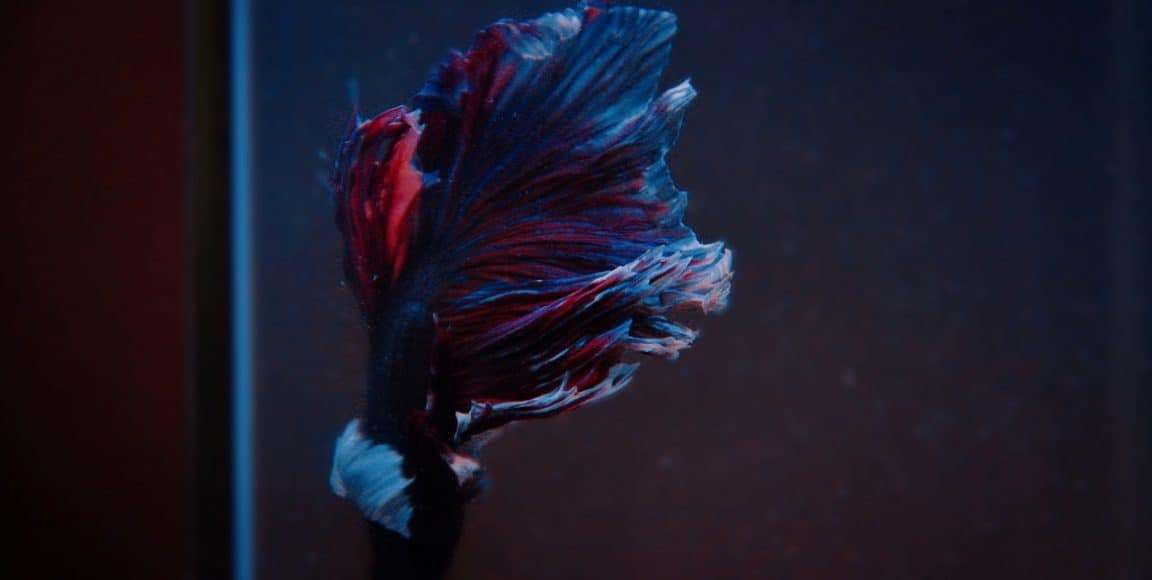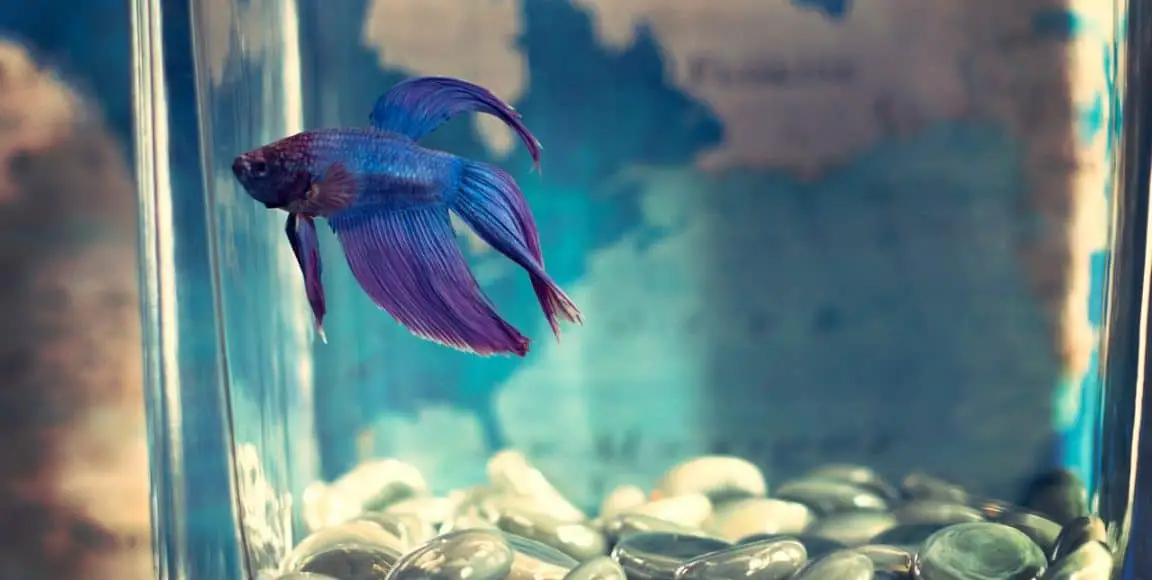Last Updated on October 6, 2020
Ick on your bettas are unsightly to look at. They can take away the beauty that makes bettas unique. Take note that this can lead to your bettas’ last resting place if left untreated.
That’s the reason you must never overlook treating ick on your bettas. And if you’re struggling to get rid of betta ick or don’t know how to start, we are here to help.
In this article, we will tackle ick on betta fishes, how to treat them, and some preventive measures.
Table of Contents
What is Betta Fish Ick?
Betta fish ick (Ichthyophthirius multifiliis) is a fish disease caused by external parasites. They look like white spots that stick to your bettas’ bodies and can spread rapidly if not prevented.
Ick is highly contagious and you must treat it as soon as possible. Ick can attach and detach to your fish after four days. The ick then reproduces and swims around the fish tank and attach it to other fishes.

Symptoms of Betta Fish Ick
Spotting a betta fish that has contracted an ick is easy. Here are its common symptoms:
Itchiness
Betta fish ick is equivalent to skin conditions in humans hence the itchiness. If your betta caught the disease, you will often find them rubbing against objects. The itchiness will become severe to the point it can damage their scales when they rub their bodies against objects.
White spots
Ick is a very visual fish disease. They come in the form of white spots that you can find on your betta’s body. These white dust can turn gold over time if left untreated. When this happens, it can lead to a secondary disease called “velvet” which is fatal for your bettas.
Lethargy
Betta fishes that have an ick lose their energy. They will have difficulty swimming and they mostly spend their time rubbing on rocks and ornaments. Keep in mind that lethargy also occurs on other fish diseases too and not just ick.
Clamped fins
If you notice that your betta is clamping their fins, this is also a sign of ick. Clamping of fins is also a sign of stress.
Having difficulty to breathe
Ick can also affect your bettas’ gills. This can lead to them having difficulty breathing which can affect their respiratory organs and can eventually lead to death.
Related: 10 Betta Fish Diseases and Symptoms (and How to Treat Them)
Is Ick Curable?
Just like any other betta fish diseases, ick is easily curable when you treat it as soon as possible. As long as you have the right equipment and medication, you can treat ick and keep it at bay to prevent it from coming back.

Treating Ick on Betta Fishes
There are three ways in treating betta fish ick and these are:
The Isolation Method
Ick loves to stay in an environment where they have already reproduced. So what you can do is to keep your infected betta away from this environment. This means setting up a quarantine tank where your betta can stay for days.
Removing ick on your fish tank is as easy as taking its means of survival. Ick can slowly die down if you isolate its favorite target, which is your betta fish. And while you’re at it, it’s best to clean your main fish tank to keep it away from ick and other bacteria.
The Aquarium Salt and Heater Method
Prepare your wallet because, in this method, you need to buy an aquarium salt and a heater in case you don’t have one. This method involves adjusting temperature levels and putting salt to your fish tank.
Keep in mind that you should never put table salt because doing so is a recipe for disaster. You may end up killing your bettas instead of curing them. That said, follow these steps below:
Step 1 – Raise the temperature
Begin by raising the temperature of your tank in a progressive manner. Do this every day, specifically 1°F or 2°F a day. Keep raising the temperature day to day until it reaches 86°F. Ick cannot survive in higher temperatures and will eventually die if they cannot find a host.
Step 2 – Add the aquarium salt
After raising the temperature, it’s time to put aquarium salt into the tank. Do this by dissolving one tablespoon of aquarium salt every one gallon of conditioned aquarium water.
Never put aquarium salt directly to the fish tank full of water up to the surface. Aquarium salt increases salinity that ick parasites cannot survive.
The Medication Method
If you think the aquarium salt and heating method isn’t enough, then follow the medication method. But, using too much medication can hurt your betta fish. So use this in moderation only if you notice no improvements to your betta fishes’ ick.
The best medication for betta ick is Rid Ich Plus or API’s Super Ick Cure. Both medications are effective in removing ick on your fish tank. Medications have different instructions on how to put them on your fish tank so check the label first.
Related: A Helpful Guide to Betta Fin Rot Treatment
Preventing Betta Ick From Coming Back
They say that prevention is better than cure. And this principle stays true in taking care of your betta fishes to keep it away from ick. Here are some prevention tips you can follow:
A quarantine tank is your friend
Before putting new bettas (or any kind of fish) to your main tank, let them stay on a quarantine tank first. This gives you time to monitor them if they are healthy and not susceptible to fish diseases. Not to mention, it also saves you time and effort from managing your main fish tank.
Avoid buying unhealthy-looking fishes
This one is a no-brainer, and it saves you from the hassle of setting up a quarantine tank as mentioned above. There’s no denying that betta fishes are expensive.
But we always have this trait of not saying “no” to a cheaper offer. Always take a keen look at those bettas before buying it, especially if it comes at an affordable price.
Keep your bettas away from stress
Just like humans, betta fishes can also experience stress too. And when bettas are stressed, they will be vulnerable to diseases.
That’s why it’s ideal to keep them stress-free by taking stressors away from the fish tank. This includes removing objects that lead to the stress, test aquarium parameters if they are at an optimal level, and avoid overcrowding.
Tank overstocking is a no-no
There are several factors that come into play when we talk about tank overstocking. And these are putting too much fish, myriads of decorations, and planting too many live plants.
Keep your fish tank simple and spacious for your betta fishes. But if you want your creativity to shine in fish tank design, then get a bigger tank.
Isolation is key
If your infected betta is swimming along with other fishes in one tank, then isolate them as soon as possible. Ick is a highly contagious fish disease and can spread to other fishes in just a snap. So do your bettas a favor by making a quarantine tank ready for emergencies.
Related: How To Deal With Betta Bacterial Infection?
Conclusion
Betta ick is not tricky to cure as long as you have the right materials in hand. But, prevention is still the ideal way to go. By applying preventive measures, it saves you time and money spent just to cure the disease.
Let this be an eye-opener of how important it is to take care of your betta fish. So always do your best to tend them so they can nurture and develop healthily. Not to mention, having a clean and well-maintained fish tank also pays off too.
